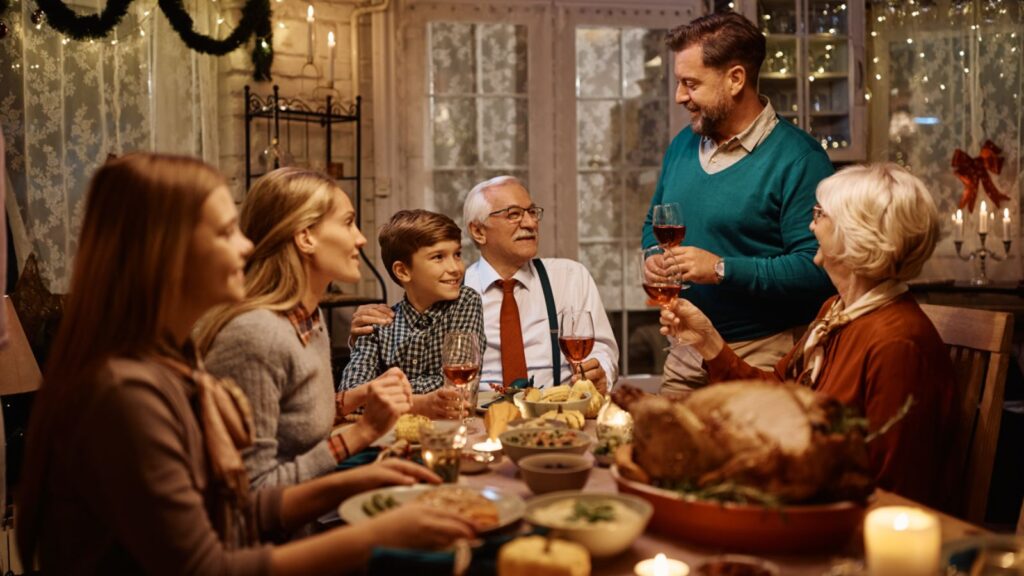Southern hospitality is renowned for its warmth and charm, but certain phrases can quickly sour a conversation in Southern homes. Understanding these nuances can help you navigate social interactions more gracefully. Here are some common phrases considered rude in Southern homes and why it’s best to avoid them.
“Bless Your Heart”

While “Bless your heart” might sound kind, in the South, it often carries a condescending undertone. It’s usually used to express pity or to soften criticism. Instead of using this phrase, try to be more direct yet gentle in your expressions of sympathy or concern. According to Southern Living, it’s all about the tone in which you deliver this phrase; if people can sense your humor, it could be acceptable.
“You People”

Referring to a group as “you people” can be divisive and impolite. It creates an us-versus-them mentality that can be off-putting. Using more inclusive language develops a sense of community and respect.
“Aren’t You Precious?”

This phrase can sound patronizing, especially when directed at adults. It’s often used to belittle someone’s naivety or lack of knowledge. Genuine compliments or constructive feedback are always more appreciated.
“That’s Nice”

Responding with “That’s nice” may not sound negative, but it can seem dismissive. It suggests you’re not engaged in the conversation, so you should show genuine interest by asking follow-up questions and sharing your thoughts.
“Calm Down”

Telling someone to “calm down” can escalate tensions rather than defuse them. It implies that their emotions are unjustified, as discussed in My Therapist Online. Acknowledging their feelings and offering support is a more effective way to help someone relax.
“I Know Better”

Southerners like to say what they think and often wear their hearts on their sleeves. But always claiming superior knowledge can come across as arrogant. It dismisses the other person’s perspective and shuts down the conversation. Listening and acknowledging other viewpoints fosters more productive and respectful discussions.
“What Do You Do for a Living?”

In the South, asking someone about their occupation when you first meet is considered impolite. This question can seem intrusive and might make people feel like you are assessing their social status or financial situation. Instead, Southern etiquette encourages conversations to focus on non-material topics like interests, food, or family.
“Whatever”

Using “whatever” to dismiss someone’s opinion is disrespectful and shows a lack of interest in their perspective. Even when you disagree, engaging in meaningful dialogue shows respect and consideration, especially in the South, where people can be unforgiving if you are rude to them.
“You’re Wrong.”

Southerners will often be direct rather than skirting around an issue. But, directly telling someone they’re wrong can create defensiveness and conflict. It’s more effective to present your perspective and invite discussion. Phrases like “I see it differently” or “Can we explore this further?” are more constructive.
“This Tastes Different Than How I Make It”

When you’re a guest in a Southern home, making negative comments about the food, even subtly, is considered very rude. Southerners adore their food, so such remarks can be taken as a direct insult to the host’s cooking skills and hospitality. Instead, it’s best to compliment the aspects of the meal you enjoyed or simply express gratitude for the effort put into preparing it.
“You Must Be From Around Here”

This phrase can come across as condescending, suggesting something negative about someone’s local status or background, and it can alienate the person you’re speaking to. Southerners take pride in their community and roots, so showing genuine interest in the local culture and traditions is more polite without making assumptions.
“I’ll Have the Unsweetened Tea”

Asking for unsweetened tea in the South, where sweet tea is a beloved staple, might raise a few eyebrows. While it’s perfectly fine to prefer unsweetened tea, making a fuss about it or expressing disdain for sweet tea can come across as criticizing a regional tradition. It’s more tactful to quietly request unsweetened tea if available without commenting on the alternatives.
“That’s Not How We Do It Where I Come From”

Comparing someone’s home or lifestyle to another place can be offensive, particularly in a way that implies superiority. Southerners take pride in their ways and traditions, and such comparisons may come off as dismissive or disrespectful. It’s more considerate to show appreciation for local customs and take the opportunity to learn from them.
“Can I Talk to the Man of the House?”

This question can seem outdated and sexist, suggesting that only the male head of a household can make decisions or participate in serious discussions. It’s important to address all adults in the home equally and respect their roles, regardless of gender.
“Isn’t This a Little Too Fancy?”

When visiting a Southern home, questioning the effort or extravagance put into hosting or meal preparation can seem ungrateful. Southerners often take great pride in presenting their homes and meals, and such remarks can come across as dismissive of their efforts. It’s more gracious to appreciate the hospitality and compliment the host on their choices, as acknowledging their effort is an important aspect of Southern etiquette.
“Why Do You Talk So Slow?”

Mocking or commenting on someone’s accent or speech pattern is deemed highly impolite in the South. These remarks can embarrass the speaker and be seen as mocking their heritage or upbringing. Southern speech often reflects a rich history and regional pride, so listening respectfully and engaging without criticism is important.
“This Is How We Fix It up North”

Suggesting that methods from other regions are superior can offend a Southerner’s sense of local pride and expertise. Whether related to cooking, gardening, or decorating, respecting local traditions and practices is important. Visitors should appreciate that one of the charms of exploring new places is discovering how things are done differently there.
“Must Be Nice”‘

Saying “Must be nice” can sound resentful and envious. It implies that the other person’s success or happiness is undeserved. Celebrating their achievements and being genuinely happy for them shows positivity and goodwill.
“I Don’t Really Watch Football”

Gallup reports that 41% of U.S. adults say football is their favorite sport. Sports, especially college football, are deeply ingrained in Southern culture. Dismissing the sport entirely can come across as disinterest in a passion that many Southerners hold dear. Even if you’re not a fan, showing interest or asking questions about the sport can demonstrate respect for their interests.
“I’ll Just Eat Out Instead”

Declining an invitation to dine at a Southern home in favor of eating out can be seen as a slight against the host’s cooking or hospitality. It implies a preference for restaurant food over what has been lovingly prepared at home. If you have dietary restrictions or preferences, it’s more polite to discuss these with the host beforehand, as they are usually more than willing to accommodate.
“It’s Just a Little Get-Together, Right?”

Underestimating or downplaying the significance of a social event or gathering in a Southern home can be disrespectful. Many Southern hosts value social events highly, regardless of their size, and put considerable effort into planning and preparation. Acknowledging the event’s importance and participating wholeheartedly demonstrates respect for the host’s efforts and social customs.
19 Grim Realities of Dating After 50 That Are Often Overlooked

19 Grim Realities of Dating After 50 That Are Often Overlooked
26 Things That Will Be Extinct Because Millennials Refuse to Buy Them

26 Things That Will Be Extinct Because Millennials Refuse to Buy Them
24 Outdated Slang Terms You Absolutely Shouldn’t Be Using Anymore

24 Outdated Slang Terms You Absolutely Shouldn’t Be Using Anymore
25 Hardest Parts About Getting Older That No One Ever Talks About

25 Hardest Parts About Getting Older That No One Ever Talks About





